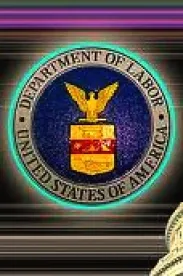In a welcome departure from its recent practice, the U.S. Department of Labor’s Wage and Hour Division (WHD) recently issued its first new opinion letters in almost ten years. In addition to issuing three new opinion letters earlier this month, on January 5, 2018, WHD reissued seventeen opinion letters previously withdrawn under the Obama administration.
The resurrection of this practice offers employers a useful tool to ensure compliance with federal employment laws. Prior to the Obama administration, the WHD had a longstanding practice of issuing opinion letters in response to inquiries from employers concerning the application of the Fair Labor Standards Act (FLSA), the Family Medical Leave Act (FMLA) and other laws enforced by the WHD. These letters have traditionally provided guidance to both employers and employees concerning compliance with the laws and regulations under WHD’s purview. Significantly, for employers, good faith reliance upon WHD’s opinion letters can provide a defense to potential claims of a violation of the FLSA or other laws under the WHD’s jurisdiction.
First New Opinion Letter: When is Travel and Commute Time Compensable?
In one April 12, 2018 opinion letter, WHD addressed specific questions concerning whether, under the FLSA, employers must compensate employees for commute and/or travel time.
In this instance, a company employed technicians who regularly traveled to job sites in different areas and worked varied schedules. Occasionally, the technicians flew from their homes to the company’s headquarters for training. The company asked WHD to address three situations: (1) whether travel time is compensable when an employee flies to the company’s headquarters for trainings and that travel occurs on weekends or at night; (2) whether an employee’s commute time is compensable when they drive, potentially long distances, from their homes to their office to pick up a job itinerary and then travel to a customer location; and (3) when the employee travels from their home to multiple job sites but does not travel to a company facility.
Travel Time Is Compensable If It Falls Within An Employee’s Regular Workday
With respect to long distance travel, WHD reiterated the general rule that such travel is considered “worktime when it cuts across the employee’s [regular] workday.” If the travel is outside of the employee’s “regular working hours,” time spent as a passenger on a plane, boat, bus or car is not considered “worktime.” WHD concludes that the employer must first determine whether the travel falls with the employee’s workday – if the travel does fall within those hours, it is compensable, regardless of whether the travel is during a workweek or on a weekend.
Importantly, the WHD also provided instruction as to what constitutes a “workday.” In this case, the employer asserted that their employees did not have a “regular workday,” and thus, it was difficult to determine whether travel fell within the workday. In such a situation, WHD instructs that an employer should look back at the employee’s time records over the prior month to determine if they can identify a pattern that equates to a typical workday. If so, the employer should utilize those hours worked as the employee’s “workday” for determining whether the employee should be compensated for travel time. However, if there is truly no pattern constituting normal working hours for the employee, employers should come to an agreement with the employee as to what should constitute the employee’s workday for the purposes of compensating the employee for travel.
Fortunately for employers, WHD notes that when an employer reasonably uses these methods to determine an employee’s workday for purposes of compensating travel time, it will not find a violation of the FLSA.
Commute Time Is Compensable When Employees Drive Between Worksites After the Employee’s Initial Commute to the First Worksite
WHD considered whether the second and third situations proposed by the employer constitute commute time and reiterated the general rule that commute time is not compensable under the FLSA. As the WHD clarified, this is the case whether or not the employee uses a company vehicle. However, after an employee arrives at a worksite, should the employee later travel from that worksite to another worksite during their normal workday, such travel time is compensable.
Second Opinion Letter: Rest Breaks for A Serious Health Condition May Not Be Compensable
In a second April 12 opinion letter, WHD considered whether certain rest breaks are compensable under the FLSA.
In the situation presented, an employer asked whether it was required to compensate employees for rest breaks when the rest breaks were medically prescribed due to an employee’s serious health condition and therefore fell within the purview of the FMLA. Specifically, in this case, employees needed one fifteen minute rest break for every hour worked throughout the workday.
WHD first reiterated that generally, rest breaks of 20 minutes or less primarily benefit the employer and are therefore compensable. However, in the case presented, WHD concluded that because the rest breaks were to accommodate a serious health condition under the FMLA, such breaks primarily benefit the employee and are not compensable.
WHD further noted, although such frequent breaks for an employee’s own serious health condition under the FMLA are not compensable, if the employer regularly provides paid rest breaks for other employees, they must provide the same number of paid rest breaks to the employees with a serious health condition. For example, if an employer regularly provides employees with two paid fifteen minute rest breaks for every eight hour shift, the employer must also provide the same number of paid rest breaks to the employee with a serious health condition. However, any breaks beyond those afforded to others may then be uncompensated or the employee may use sick time or paid time off for such breaks.
Third Opinion Letter: Limits On Wage Garnishments
In its third April 12 opinion letter, WHD considered what types of bulk payments to employees may constitute “disposable earnings” and are thus subjected to limits on garnishment under the Consumer Credit Protection Act (CCPA).
At an employer’s request, the WHD analyzed eighteen separate types of payments to employees and categorized the payments into three groups: (1) payments that qualify as earnings under the CCPA; (2) payments that partially qualify as earnings under the CCPA; and (3) payments that do not qualify as earnings under the CCPA.
Payments that qualify as earnings: According to WHD, commissions, bonuses (whether discretionary or nondiscretionary), profit sharing, relocation incentive payments, attendance awards, safety awards, service awards, retroactive merit increases, holiday pay, termination pay and severance pay, are all considered earnings under the CCPA. WHD reasoned that this is so because each of these categories of payments is for services rendered to the employer.
Payments that may partially qualify as earnings: WHD confirmed that in the case of workers’ compensation settlements or settlements for wrongful termination claims, the portion of such settlements attributable to past or future wages, would constitute earnings under the CCPA. However, any non-wage payments, such as payments for medical expenses, pain and suffering, or punitive damages, would not be considered earnings for the purposes of the CCPA.
Payments that do not qualify as earnings: Payments for the buyback of company shares is the only category of lump sum payments to employees which the WHD does not consider earnings under the CCPA. WHD reasoned that such buybacks are not tied to employee service and are purely for the benefit of the company and its shareholders.
Despite considering eighteen separate categories of payments, WHD noted that these are not exhaustive lists of the potential categories of payments which may or may not be considered wages under the CCPA.
What Does this Resumed Practice Mean for Employers?
The fact that the WHD has resumed its practice of issuing opinion letters is a good sign for employers looking for answers on day-to-day issues. However, when seeking to rely on a WHD opinion letter, check WHD’s website to make sure that the opinion letter in question remains in effect. This is particularly important in the year or two after the change of an administration from one party to another.
Any employer or employee may request an opinion letter either from the WHD directly or through counsel. Employers wishing to request an opinion letter may submit the request by email to WHDopinionletters@dol.gov or by mail to U.S. Department of Labor Wage and Hour Division, Division of Regulations, Legislation, and Interpretation, 200 Constitution Ave., NW, Room S-3502, Washington, DC 20210. Though, some employers may prefer submitting their request anonymously through counsel.
Importantly, always remember that WHD opinion letters concern only the application of federal law. Many states have separate wage and hour laws and employers are advised to consult the applicable laws of the state(s) in which they operate in order to ensure full compliance.
Brooke Purcell contributed to this article.



 />i
/>i

